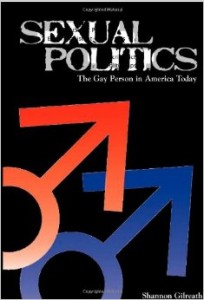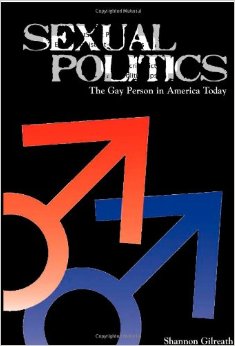 Sexual Politics: The Gay Person in America Today
Sexual Politics: The Gay Person in America Today
by Shannon Gilreath
University of Akron Press. 176 pages, $42.95
IN HIS SOLID ANALYSIS of the contradictory status of “the gay person” in the United States at this moment, and the strategies that might advance the cause of social and legal equality, Shannon Gilreath shows himself to be well-armed with both knowledge and political passion, and with a gift for finding the right word.
Not yet thirty, Gilreath has already risen to the rank of assistant director of a law program at Wake Forest University in North Carolina. He’s also a Catholic convert (raised Baptist) who defends his faith to the skeptical GLBT reader while exposing the dubiously “Christian” roots of the homophobia that’s currently espoused by both the Vatican and Protestant fundamentalists. He argues that the sexual intrusiveness of the present-day American government, originally founded on Enlightenment principles, is moving it closer to the Islamic theocracies that it is currently fighting than the true liberalism of the European democracies.







